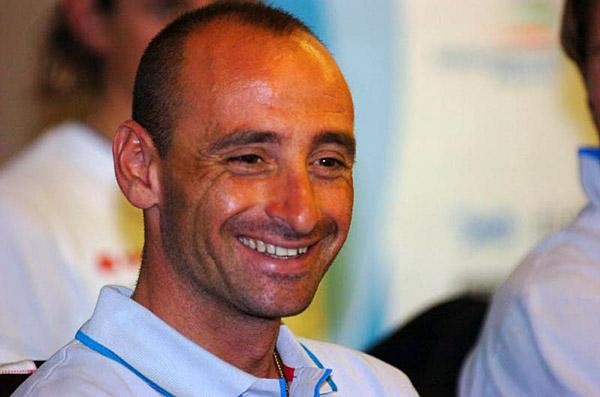Sinkewitz "didn't invent doping," clears Bettini
By Susan Westemeyer and Gregor Brown Patrik Sinkewitz continued his public relations campaign with...

By Susan Westemeyer and Gregor Brown
Patrik Sinkewitz continued his public relations campaign with an interview on German television's Sport Studio Saturday night. "I didn't invent doping," he said in his own defence. "As a pro you grow into it over the years. Doping was a part of the system."
Sinkewitz said he used autologous blood doping until the Tour de France 2006. He said he was transfused by team doctors Lothar Heinrich and Andreas Schmid at the the Freiburg University Clinic three or four times. Each time a half litre of blood was taken and stored. As needed, the blood would be transfused back "in the usual way". His last transfusion was after the first stage of the Tour 2006, but had to be cancelled when the blood didn't flow properly. "I was upset that it didn't work," Sinkewitz said. He never worried about any possible side-effects. "I wasn't concerned about it, I just wanted to be successful."
However, everything changed after the 2006 season, he said. New management which took the anti-doping fight seriously came in, a point team manager Bob Stapleton emphasized. "The Sinkewitz blood doping happened prior to the new management and significant changes in the team," Stapleton told Cyclingnews. "Those changes include an anti-doping program targeted at blood manipulation."
In the television interview, as well as in extended interview in the German news magazine Spiegel, the 27-year-old refused to name names as to which of his team-mates may have also been involved. "I won't say anything about my colleagues," he said, but indicated that the Freiburg clinic wasn't there just for him.
He did mention one colleague by name in the Spiegel interview, but that was to completely exonerate former team-mate and two-time World Champion Paolo Bettini. Prior to the World Championships in Stuttgart this September, the German television broadcaster ZDF quoted the German as saying that he received testosterone gel from both Davide Bramati and Bettini. One day later he denied the statements, and in the recent Spiegel interview he reiterated this.
"No, it was not me," he responded as to who put Bettini's name in circulation. "I was out shopping when Bettini called me [in September] to ask for an explanation of the accusations that were going around. It was a complete error.
The latest race content, interviews, features, reviews and expert buying guides, direct to your inbox!
"Maybe the name of Bettini was said in the course of a meeting with the BDR [German cycling federation - ed.] anti-doping commission, but I never said that I received the [doping] products from him. These things were constructed by others. Bettini warned me, 'If it was you that said it then you will be crying.'"
Meanwhile, Sinkewitz hopes to return to pro cycling as quickly as possible. According to the dpa, the World Anti-Doping Agency is set to consider a new set of rules at its meetings later this month. One of the proposed changes would allow athletes who cooperate to receive a reduced sentence of one-fourth the usual time. If this takes and effect and is applied to Sinkewitz, it could allow him to return in time to participate in the Tour de France 2008. One-fourth of 24 months would be six months, and he is counting on the fact that the suspension would retroactively start with the date of his confession, August 30, so that he could return to the peloton in April - assuming he finds a team.

Laura Weislo has been with Cyclingnews since 2006 after making a switch from a career in science. As Managing Editor, she coordinates coverage for North American events and global news. As former elite-level road racer who dabbled in cyclo-cross and track, Laura has a passion for all three disciplines. When not working she likes to go camping and explore lesser traveled roads, paths and gravel tracks. Laura specialises in covering doping, anti-doping, UCI governance and performing data analysis.